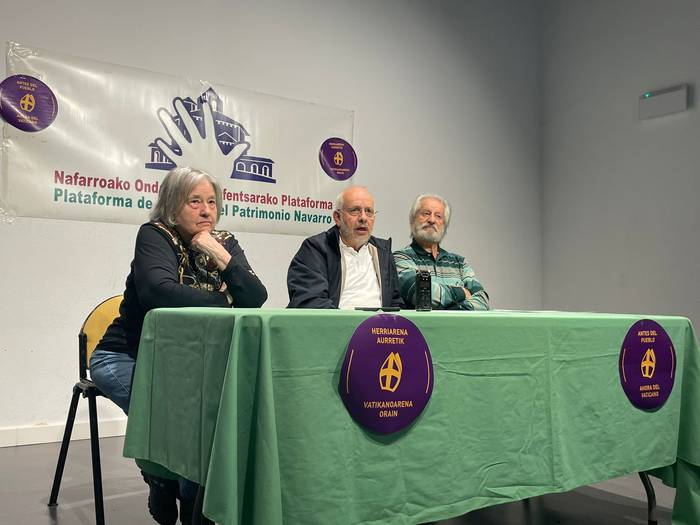Archbishop of Navarre willing to return the goods registered, "if a judge asks us"
- The Archbishop of Pamplona, Florencio Rosello, and the Bishop of Tudela, Joseba Segura, have expressed their willingness to return the property registered by the Church of Navarre if the courts so order, but have argued that the inscriptions have been legal.

Rosello notes that the imregistrations were made "in accordance with the law" but admits that "there is some appeal in court." He explains that when he arrived at the Church of Navarre, there was an "open will" in the matter of imregistrations, although the reality was "partially closed".
The archbishop said that they only want what belongs to them, but he added that "if a judge tells us that this is not right and that it does not belong to us, I would gladly return it". He summarizes the position of the archdiocese: "If there is a resource and we are asked or ordered to return it, we would return it." They have also added that they would not be fighting with the resources "until they have flown to Brussels", according to Euskalerriairratia.
The Almighty Catholic Church
Article 206 of the Mortgage Law of 1946 and its 1947 Regulations allowed the signing of property in the name of the Church, placing the Church and the bishops at the same level of public administration and notaries. This law is based on the friendship of the Franco regime with the Catholic Church, and as the coordinator Recuperando emphasizes: "(Franco) not only strengthened his power, but also rewarded the Catholic Church for its unconditional support."
When the Spanish Constitution of 1978 ratified the confessionality of the state, it did not repeal this law. Moreover, in 1998 José María Aznar gave the Church an additional advantage: "The possibility to imregister places of worship, which the Franco regime itself did not dare to do," said the coordinator. The law was suspended following a ruling by the European Court of Human Rights (ECHR) in 2015.
"There is no way to know what was imprinted with the signature of a bishop"
Although the words of the Archbishop of Navarre express his willingness to return the goods that have been registered, José María Rosell, President of Recuperando Coordinadora, points out that there is no way to know which are the goods that have been registered with the signature of a bishop. It denounces the difficulties in obtaining even more basic information necessary for the recovery of the property: "The Church, which does not provide information about thousands of properties and estates, provides overly general descriptions that prevent its recognition and in reality have properties that encompass a large number of properties registered as one property."
"The only documents that are out of doubt are simple real estate notes, but the path to get them is almost impossible," he explains.







